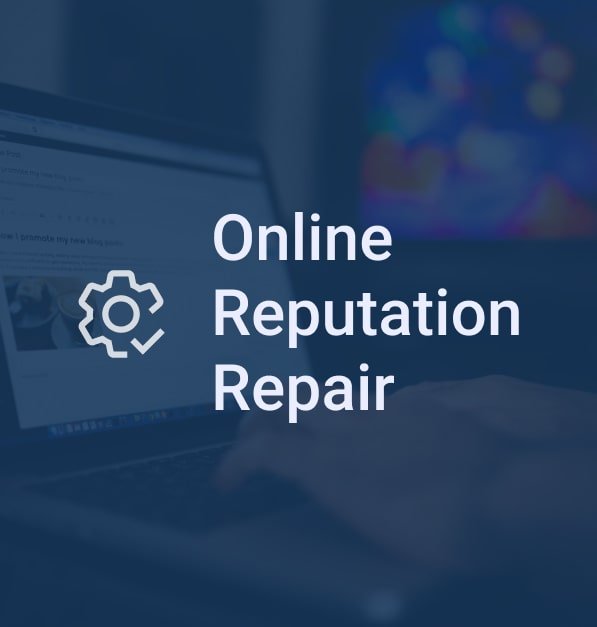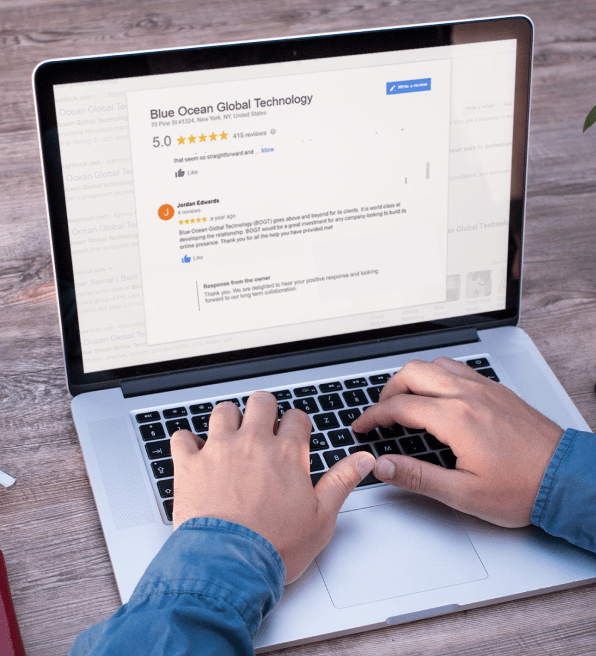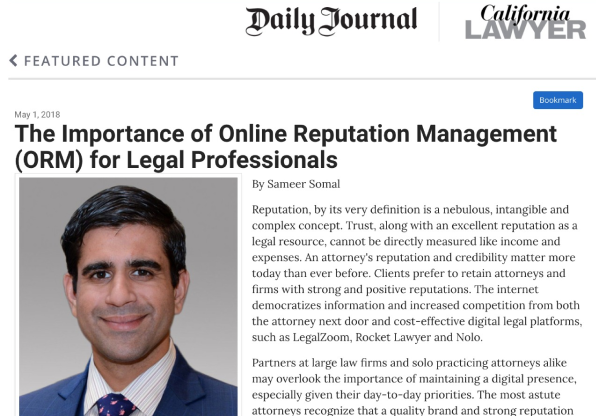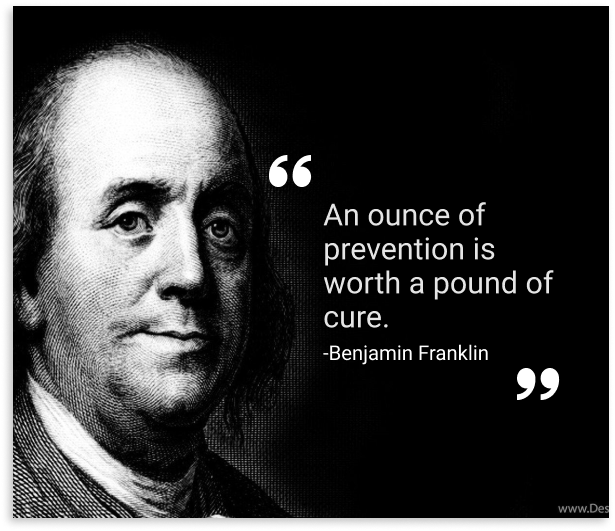- Why online reputation for Lawyers is important?
Toggle Content
- How can my online presence affect my career?
Toggle Content
- Is Social Media is a part of my professional online presence?
Toggle Content
- How to get rid of fake reviews on my profile
Toggle Content
Personal Reputation Management
For Lawyers
Managing Your Reputation: Tips for Legal Professionals
Benjamin Franklin, who knew a thing or two about building one’s standing in the world, once advised, “It takes many good deeds to build a good reputation, and only one bad one to lose it.” This adage has aged well. In fact, we should take this guidance even more seriously in the current digital decade, in which criticism—deserved or not—can easily spread like wildfire, and in ways, Franklin could never have envisaged.
A more modern mogul, Warren Buffett, offers similar advice with a contemporary twist: “It takes 20 years to build a reputation and five minutes to ruin it. If you think about that, you’ll do things differently.” Like Franklin, Buffett implies that carefully maintaining your reputation should be a daily concern, not an occasional one, if you want long-term success.

This is true for people in business and arguably even more so for those who practice law. Client trust is paramount for lawyers and legal executives, so the stakes surrounding maintaining a favorable reputation are extremely high. Whether you are a seasoned legal professional or a freshly minted JD, never lose sight of the fact that fostering a positive reputation will be central to your success. And because today’s potential clients will frequently evaluate you based on what they find about you on various websites and in reviews, proactively taking the reins with respect to cultivating your online reputation is particularly important. If this leaves you wondering where to start, or if you think the jury might be out on whether your online reputation is currently at its best, try adopting these key habits.


Regularly Monitor Your Digital Presence

Put yourself in a potential client’s shoes: You are in legal trouble, and you urgently need an experienced ally. The first thing you’d do is go online to find an attorney with an irreproachable reputation.
Now, with this scenario in mind, go online and do a Google search on your name to see what comes up. If you don’t find much information because you are just starting out or don’t yet have an established online presence, this isn’t necessarily a bad thing. You can turn that to your advantage by consciously cultivating a positive online presence going forward.
Create Google Alerts

If you aren’t an advanced Google user, you might not know that Google Alerts are free and can help you stay abreast of what is being said online about you and your firm. You can also use this tool to monitor news in your industry and keep track of your competitors. And other online tracking tools can be used in combination with Google Alerts to maximize your coverage. You just need to decide which options will give you the most comprehensive view while best suiting your notification preferences.


Repair Your Online Reputation When Necessary

Potential clients take negative online reviews and commentary seriously. Legal services are costly, and no one wants to invest in a professional with a poor reputation. Any damage you incur to your reputation can cause long-lasting damage to your career if not handled properly.
Because the work involved in mending a damaged reputation can be time-consuming, the best strategy is to prevent negative reviews and commentary from appearing in the first place, whenever possible. Thankfully, knowledgeable third parties are available to help you deal with a digital crisis when it occurs. Having a PR team on speed dial that you can expediently rely on can help you avert a viral spread and regain control if you need to.
Respond to Online Reviews

Ignoring a negative review in hopes that it will simply fade into non-relevance is never recommended. Always let readers in the cybersphere know that you take any criticism seriously and clearly communicate that you are working to resolve the matter with the client personally. Try to maintain a cool head as you do so. If you find what you suspect is a fake review or one that constitutes misuse of the internet, you can take steps to have it removed. In addition, take time to plan ahead and determine what your ideal response should be in different situations. Better yet, enlist a strong online communications team you can trust to keep on top of new reviews
Also, always appreciate the positive reviews you receive, and take the time to thank reviewers for their compliments. The professionalism and care you show by doing so will impress future readers and win you more clients.


Carve Out a Presence on Law-Specific Websites

Websites such as Avvo, Novo, ABA Journal, Super Lawyers, Best Lawyers, and Justia can serve as excellent jumping-off points for boosting your online presence. Invest time into creating profiles and accounts on these websites so they appear on page one of the search results associated with your name. You want potential clients to find positive information about you effortlessly. Having a presence on multiple legal platforms suggests to searchers that you are established in your field and, by implication, competent and trusted.
Some of these platforms also provide opportunities for lawyers and legal professionals to provide peer reviews and be nominated for awards that can add prestige.
Consult Our PR & Legal Online Reputation Management Team.
Post on Social Media Judiciously

Be discerning about what information about yourself you want to be private and what you can comfortably share on social media. While you might be tempted at times to reveal a little more about your personal life on such platforms as LinkedIn, Facebook, and Twitter, establish firm boundaries and stick to them.
CLE and other education programs can provide some perspective on appropriate private/professional boundaries to set with respect to social media. Consciously adopt the guiding principles of these valuable programs and, if you have employees, make sure they are informed of and follow them as well. In some situations, social media can be a powerful tool you can leverage to your benefit, but in others, it should be avoided like the plague. Know the difference.


Maintain an Effective Website

Your website is often the first contact a client has with your brand, and as such, it should be an ongoing priority. Ensure that your website makes an excellent impression from the consumer’s very first click, making abundantly clear the services you specialize in and why clients should work with you. Make it friendly and engaging but also responsive, so users don’t have to struggle to find the information they need most. And always have compliant disclosures and privacy policies so you are never in danger of someone reporting your site to the search engine.
Blog content on your site can be highly beneficial for potential clients. Focus on topics that address the legal questions your clientele is most likely to be interested in and that demonstrate that you are knowledgeable about the latest developments in your area of the law. Your blog should give clients a reason to trust in your expertise and authority.
Share Great Content

Remember that content is king. Sharing engaging content through your social media network and on your website can make a massive difference when you are working to establish yourself as an expert in your field. And make sure that you are disseminating the content you produce widely. Perception is reality in the digital world, so you should take advantage of every possible opportunity to showcase yourself as an industry leader.

Request Testimonials
When you are building your online reputation, testimonials are pure gold, so you should ask clients for them frankly. You can always add testimonials to your website, and LinkedIn has space dedicated to testimonials as “recommendations.” Because your LinkedIn profile is likely to be one of the first places potential clients go to find information about you, requesting such recommendations is definitely worth your time (as is reciprocating by providing them to others). Consider the following example of LinkedIn recommendations that add significant value:


Be Proactive

Returning to Benjamin Franklin’s fount of wisdom, he also famously declared, “An ounce of prevention is worth a pound of cure.” This is precisely the mind-set with which you should approach the information that populates your Google results. If you want to ensure that what appears about you online accurately reflects your level of expertise and the value you offer, you will have to actively cultivate your digital reputation.
If you could use help maintaining a positive digital presence, especially if you are an attorney or other legal professional, qualified experts are available to help. By having the right professionals monitoring what is being posted about you and managing anything that might pose a risk, you can remain firmly in the driver’s seat with respect to your reputation—and confident that your online presence makes the right impression on any potential clients.

Reverse SEO for Law Firms: How to Protect Yourself and Your Clients against Negative Content.




Personal Reputation for Lawyers
Have any
Questions?

